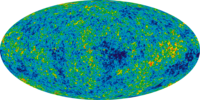
Analyses of High‐Iron Sedimentary Bedrock and Diagenetic Features Observed With ChemCam at Vera Rubin Ridge, Gale Crater, Mars: Calibration and Characterization
Sign Up to like & getrecommendations! Published in 2020 at "Journal of Geophysical Research"
DOI: 10.1029/2019je006314
Abstract: Curiosity investigated a topographic rise named Vera Rubin ridge (VRR) in Gale crater, for which a distinct hematite‐like signature was observed from orbit. However, the ChemCam and APXS instruments on board the rover did not… read more here.
Keywords: rubin ridge; high iron; calibration; iron ... See more keywords

The Chemostratigraphy of the Murray Formation and Role of Diagenesis at Vera Rubin Ridge in Gale Crater, Mars, as Observed by the ChemCam Instrument
Sign Up to like & getrecommendations! Published in 2020 at "Journal of Geophysical Research"
DOI: 10.1029/2019je006320
Abstract: Geochemical results are presented from Curiosity’s exploration of Vera Rubin ridge (VRR), in addition to the full chemostratigraphy of the predominantly lacustrine mudstone Murray formation up to and including VRR. VRR is a prominent ridge… read more here.
Keywords: rubin ridge; ridge; murray formation; vera rubin ... See more keywords

Fringing Analysis and Simulation for the Vera C. Rubin Observatory’s Legacy Survey of Space and Time
Sign Up to like & getrecommendations! Published in 2022 at "Publications of the Astronomical Society of the Pacific"
DOI: 10.1088/1538-3873/acbe67
Abstract: The presence of fringing in astronomical Charge-Coupled Device (CCD) images will have an impact on photometric quality and measurements. Yet its impact on the Vera C. Rubin Observatory’s Legacy Survey of Space and Time (LSST)… read more here.
Keywords: rubin observatory; time; rubin; vera rubin ... See more keywords

Strongly Lensed Supernovae in Well-Studied Galaxy Clusters with the Vera C. Rubin Observatory
Sign Up to like & getrecommendations! Published in 2020 at "Symmetry"
DOI: 10.3390/sym12121966
Abstract: Strong lensing by galaxy clusters can be used to significantly expand the survey reach, thus allowing observation of magnified high-redshift supernovae that otherwise would remain undetected. Strong lensing can also provide multiple images of the… read more here.
Keywords: galaxy; rubin observatory; sne; strongly lensed ... See more keywords